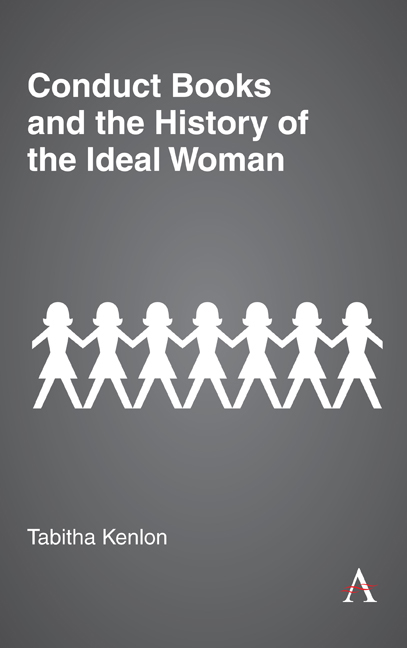Book contents
- Frontmatter
- Contents
- Acknowledgments
- Explanatory Note
- Introduction: Woman as She Should Be
- 1 A Good Woman Is a Godly Woman, Obviously
- 2 Conduct for Those Who Are Not Queen
- 3 Look but Don’t Talk: Reflections of the Ideal
- 4 Playing the Part as Nature Intended
- 5 Victoria’s Angels
- 6 Suffrage, Little Wives and Career Girls
- 7 Feminism Changes Everything, Right? Right??
- Coda: An Ideal End
- References
- Index
- Frontmatter
- Contents
- Acknowledgments
- Explanatory Note
- Introduction: Woman as She Should Be
- 1 A Good Woman Is a Godly Woman, Obviously
- 2 Conduct for Those Who Are Not Queen
- 3 Look but Don’t Talk: Reflections of the Ideal
- 4 Playing the Part as Nature Intended
- 5 Victoria’s Angels
- 6 Suffrage, Little Wives and Career Girls
- 7 Feminism Changes Everything, Right? Right??
- Coda: An Ideal End
- References
- Index
Summary
Life and Death
The story of the rape of Lucrece is often used as an example of the heights to which female virtue can aspire. From its origins in the sixth century BCE, it has been told and retold. It appears in Le Ménagier de Paris to illustrate how important it is for a woman to preserve her reputation at all costs, even at the expense of her life, because a damaged reputation is almost always irreparable (as is death). Suffragist Cicely Hamilton, writing centuries later, has a different opinion about the story. In her autobiography, Life Errant (1935), she explains that she and a school friend were puzzled when they first encountered a vague account of the episode that did not quite say what had happened to Lucrece. Hamilton and her companion were convinced that what had been done to Lucrece didn't really matter, since she was clearly a victim and not a perpetrator. They could not understand why her suicide was worthy of admiration; they found it “silly.”
Later, when Hamilton learned the complete details— that Lucrece killed herself because she was raped and thus dishonored— she was angry.
I believe my youthful thoughts and views on the relations of the sexes were a good deal influenced by the story of Lucrece; and that, all uncon¬sciously, I became a feminist on the day I perceived that— according to the story— her “honour” was not a moral but a physical quality. Once that was clear to me my youthful soul rebelled; it was insulting to talk of “honour” and “virtue” in a woman as if they were matters of chance— things which she only possessed because no unkind fate had thrown her in the way of a man sufficiently brutal to deprive her of them by force.
The paradox Hamilton identifies is striking. Women are told repeatedly through the centuries to be virtuous and guard their modesty, but Lucrece illustrates that such efforts are pointless and that women have no control over their own morality.
Early conduct manuals recognized this to a degree, as they repeatedly emphasized the importance of being seen to be virtuous, knowing that the onlookers who judged whether or not a woman was behaving appropriately could call her virtue into question for the slightest slip, or for none at all.
- Type
- Chapter
- Information
- Conduct Books and the History of the Ideal Woman , pp. 185 - 190Publisher: Anthem PressPrint publication year: 2020



